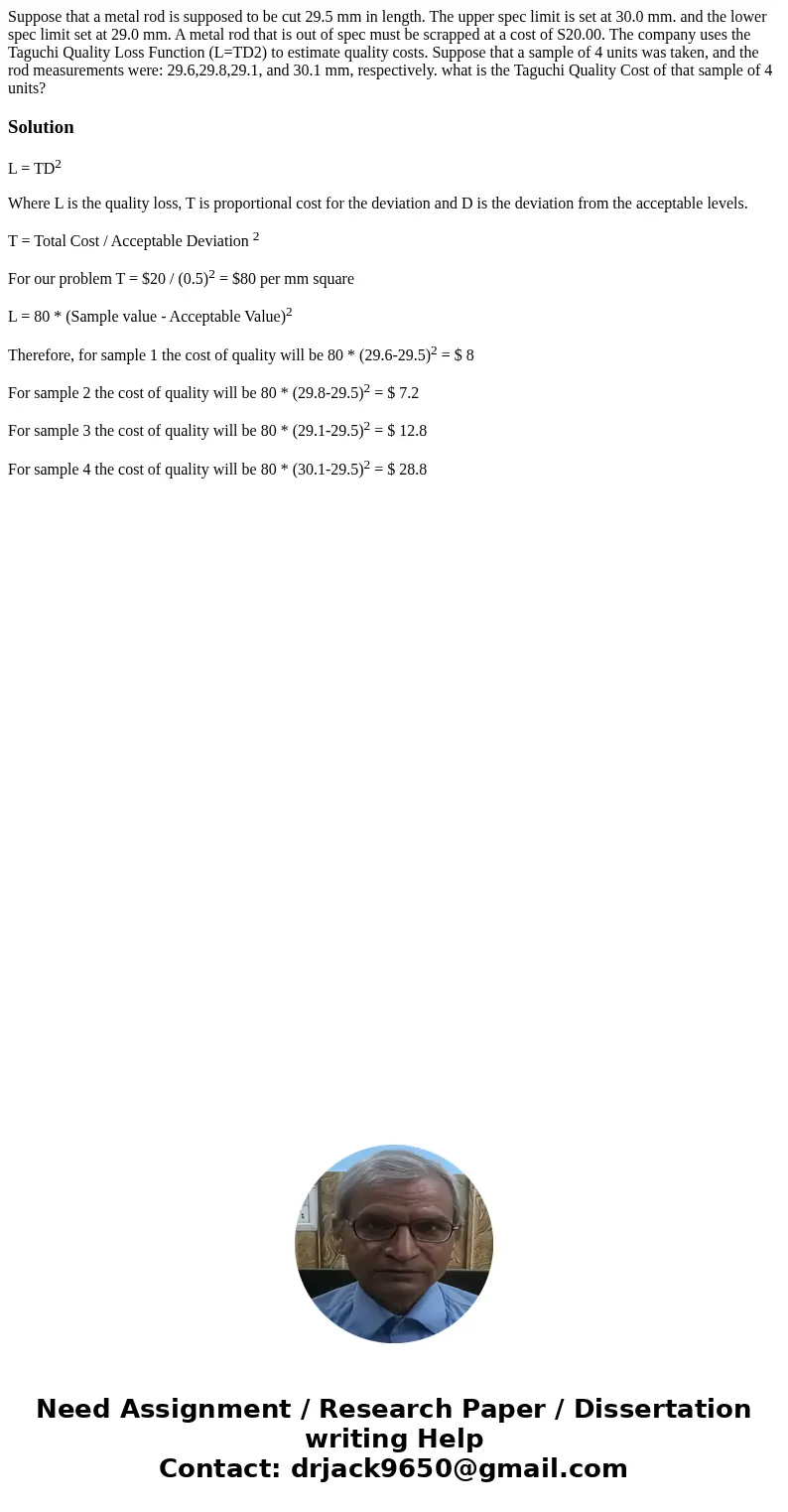Suppose that a metal rod is supposed to be cut 295 mm in len
Suppose that a metal rod is supposed to be cut 29.5 mm in length. The upper spec limit is set at 30.0 mm. and the lower spec limit set at 29.0 mm. A metal rod that is out of spec must be scrapped at a cost of S20.00. The company uses the Taguchi Quality Loss Function (L=TD2) to estimate quality costs. Suppose that a sample of 4 units was taken, and the rod measurements were: 29.6,29.8,29.1, and 30.1 mm, respectively. what is the Taguchi Quality Cost of that sample of 4 units?
Solution
L = TD2
Where L is the quality loss, T is proportional cost for the deviation and D is the deviation from the acceptable levels.
T = Total Cost / Acceptable Deviation 2
For our problem T = $20 / (0.5)2 = $80 per mm square
L = 80 * (Sample value - Acceptable Value)2
Therefore, for sample 1 the cost of quality will be 80 * (29.6-29.5)2 = $ 8
For sample 2 the cost of quality will be 80 * (29.8-29.5)2 = $ 7.2
For sample 3 the cost of quality will be 80 * (29.1-29.5)2 = $ 12.8
For sample 4 the cost of quality will be 80 * (30.1-29.5)2 = $ 28.8

 Homework Sourse
Homework Sourse